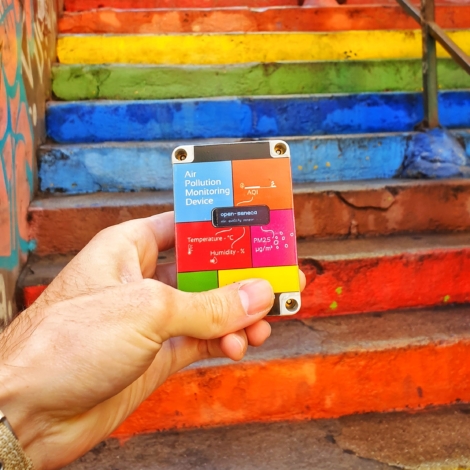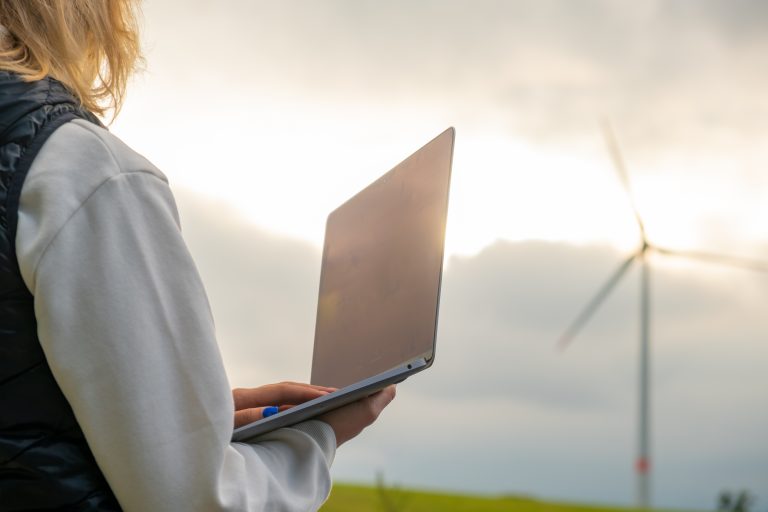Modular pay-as-you-go solar home electricity systems, a solar silk reeler, an air quality monitoring hub and seven other technologies that support sustainable development were invited for display at the 9th Multi-stakeholder Forum on Science, Technology and Innovation for the Sustainable Development Goals.
Engineering for Change invited social entrepreneurs, startups, engineers and designers to showcase their innovations that address mulitple Sustainable Development Goals and have the potential to change lives in underserved communities. At the showcase, these innovators described their cutting-edge initiatives and share insights from their experience. Here we present a virtual look at the STI Forum showcase.
Ampersand electric motorcycles and battery rentals
Based in Rwanda and Kenya, Ampersand may be Africa’s first electric transportation company. The startup builds electric motorcycles with a network of battery-swapping stations for quick charging its lithium-ion batteris. The setup can help moto-taxi drivers take home more than 40 percent more pay compared to bikes burning fossil fuels, and they save about 75 percent to nearly 100 percent in emissions, depending on how the batteries are charged. Ampersand aligns with SDG7: Affordable and Clean Energy; SDG 11, Sustainable Cities and Communities; and SDG13, Climate Action, as it provides clean and sustainable transportation, aiding climate mitigation efforts by reducing carbon emissions.
Burn Design Lab Improved Shea Nut Roaster
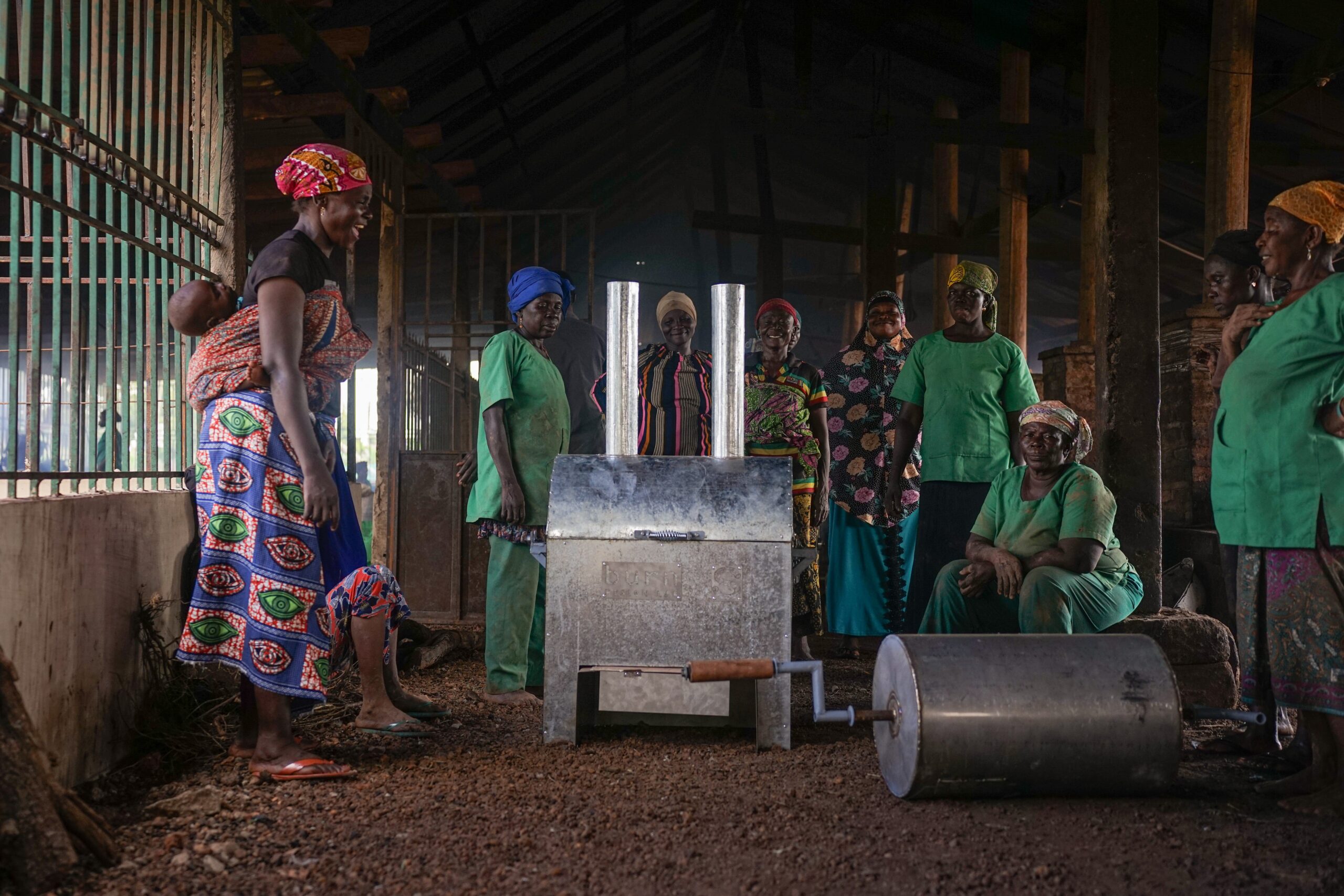
Photo: Jeremy Su / Burn Design Lab
This initiative is nominated for its alignment with SDG 2, zero hunger, and SDG 13, climate action, as it reduces emissions associated with traditional roasting methods while improving agricultural productivity of farmers
The Shea Roaster aims to improve the roasting process for shea kernels in West Africa, addressing health and environmental concerns through the development of efficient and low-emission roasting technology.
Unnati Solar Silk Reeling Machine
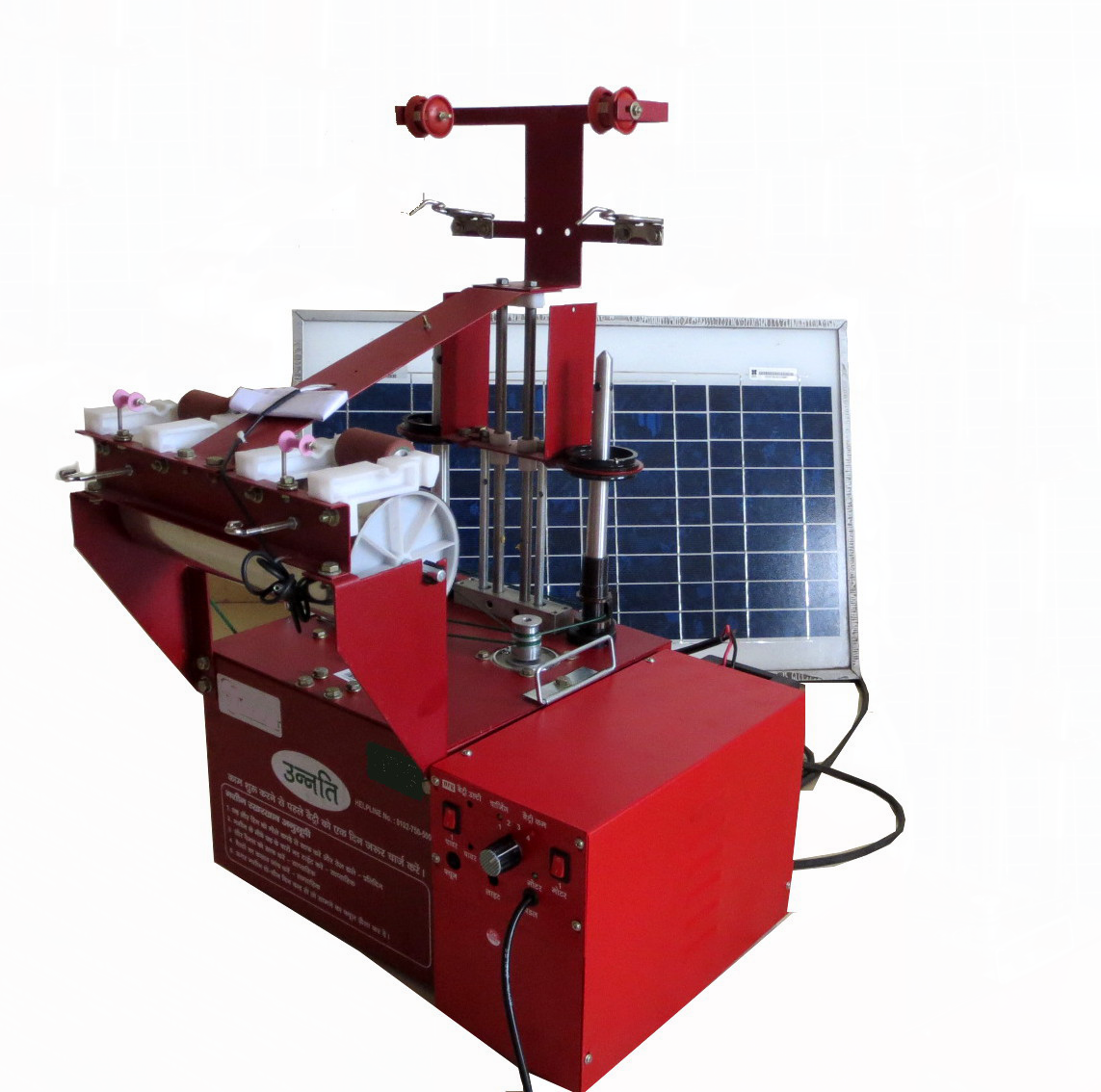
Image courtesy of Resham Sutra
Two would-be vendors of silk products ran into supply problems with Tassar silk yarn that comes from silk cocoons that grow in forests of East India. Remarkably, the entire silk extraction process is artisanal, handled almost exclusively by women in the region who do the work by hand. Recognizing an opportunity, the Resham Sutra team created a low-powered automatic silk reeler that runs on a solar panel. It is the only thing in its class and has no competition, the design team says.
Manually, silk reelers can process 70 grams of yarn in a day, which is not enough to support a family. Each machine, on the other hand, can process 200 grams in a day. To date, 7000 silk reeling machines operate in rural East India. The video below shows an array of reelers with their operators sitting beside them.
This solution supports SDG1, no poverty, and SDG2, zero hunger, as it fosters the economic growth of rural women and advances agricultural productivity.
Unnati won ASME ISHOW 2019 and they discuss their innovation in this video.
Off-Grid Spiral Water Pump
Ategeka Matia, an undergraduate engineering student at Makerere University in Kampala, Uganda, designed and built these off-grid water pumps for irrigation and domestic use. The spiral water wheel pump is a hydraulic machine designed to pump water using the energy from flowing water sources such as rivers, streams, or canals, without relying on electricity, solar power, or fuel.
The pump supports SDG1, no poverty, and SDG2, zero hunger.
bPower PAYG modular solar home systems by Bboxx
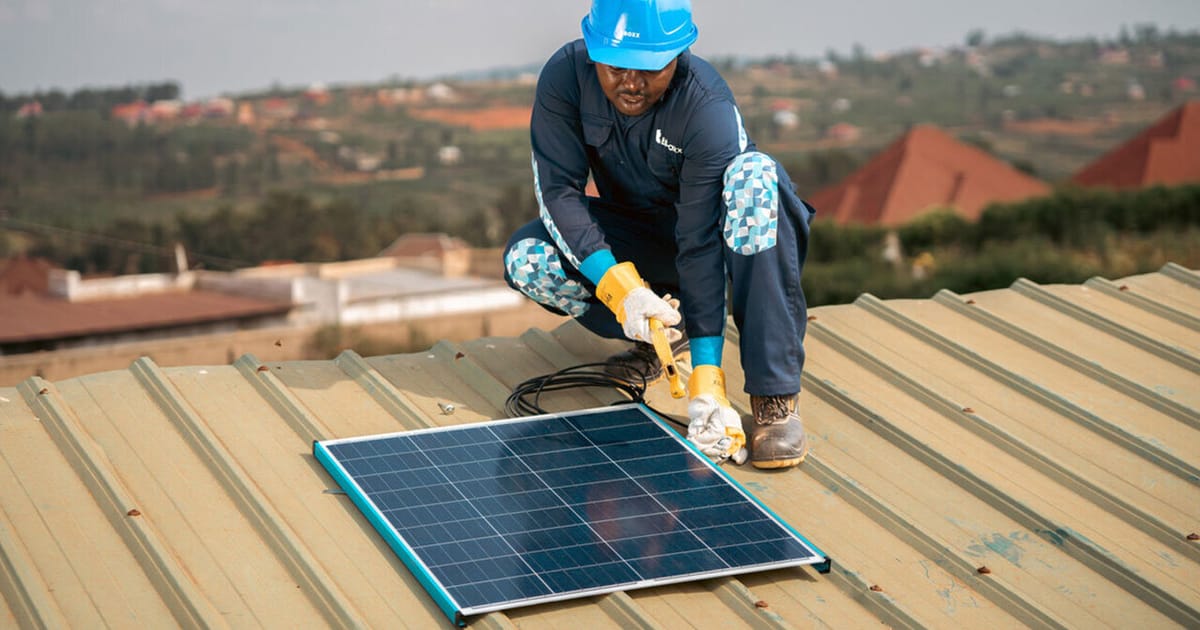
Photo courtesy of Bboxx
The Rwanda-based solar energy startup Bboxx has issued a new range of bPower modular solar home systems for off-grid communities that allow consumers pay-as-you-go. Their goal is to provide an electricity service that is as close to a grid connection as possible. The systems come in four sizes, from bPower80 that has an 80 Wh, 12.8 V lithium-ion battery and a 35 W panel, to bPower240 that includes a 240 Wh 12.8 V battery with an 80-100 panel. Through a user interface, consumers can pay for the electricity they need as they need it.
This solution aligns with SDG7, affordable and clean energy, and SDG13, climate action as it helps reduce dependence on fossil fuels, mitigating greenhouse gas emissions and promoting sustainable energy access.
Open Seneca
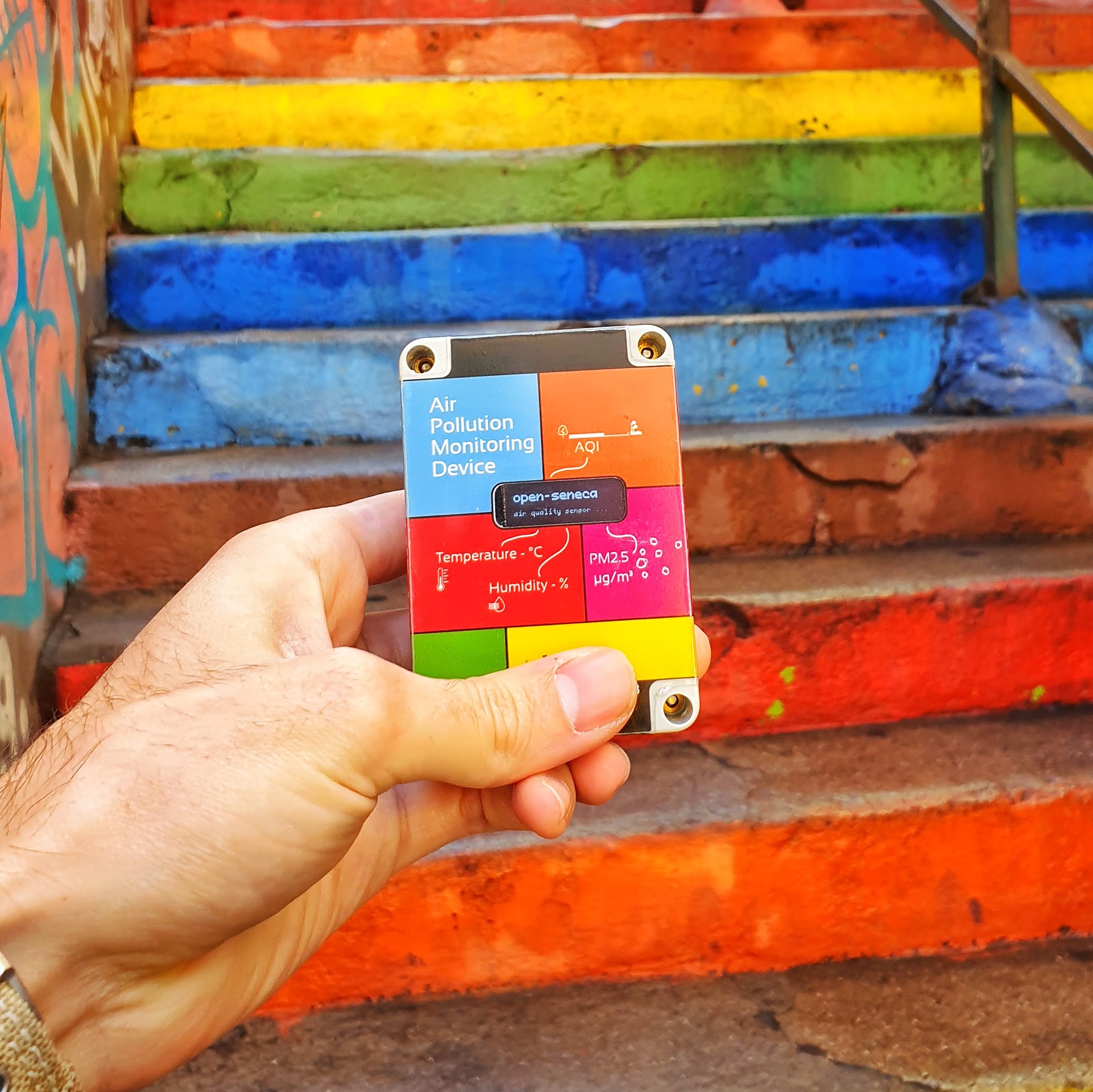
Photo courtesy of Open-Seneca
A group of students at Cambridge University have developed an open-source air quality monitor they call Open-Seneca. The Open-Seneca device is an all-in-one air quality monitor with particulate matter and optional gas sensors, GPS for location correlation, GSM connectivity, and SD card backup, designed for easy integration into project boxes with off-the-shelf components.
The monitors can be ordered online for DIY assembly, or a pre-built version is available.
The Safi Handle Milk Pasteurizer
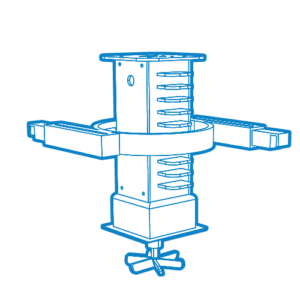
Image courtesy of ASME ISHOW
A startup in Toronto, Ontario (Canada) is developing the Safi Handle to regulate milk pasteurization. Aimed at farmers and anyone in East Africa with access to raw milk, the handle takes the guesswork out of pasteurization. Pasteurization is the heating of milk or any liquid to the point that the heat kills pathogens. The handle attaches to a pot, dips sensors and a whisk into the milk and takes the temperature while the cook turns a crank to stir. The device signals success when the milk has reached a certain temperature for a specified period. The device is compact, human-powered and supports pasteurization in less than three minutes.
Pathogens that the device helps to remove include MERS, a coronavirus that can be deadlier than COVID19.
This solution aligns with SDG1, no poverty, and SDG2, zero hunger, by improving food safety, supporting agricultural productivity, and enhancing income opportunities for farmers.
Safi won ASME ISHOW USA in 2023. The ISHOW leadership selected the Safi for this list for its strong potential to scale and have a positive impact. The team continues research and development.
Solar Ice Maker 50 by JK Engineering
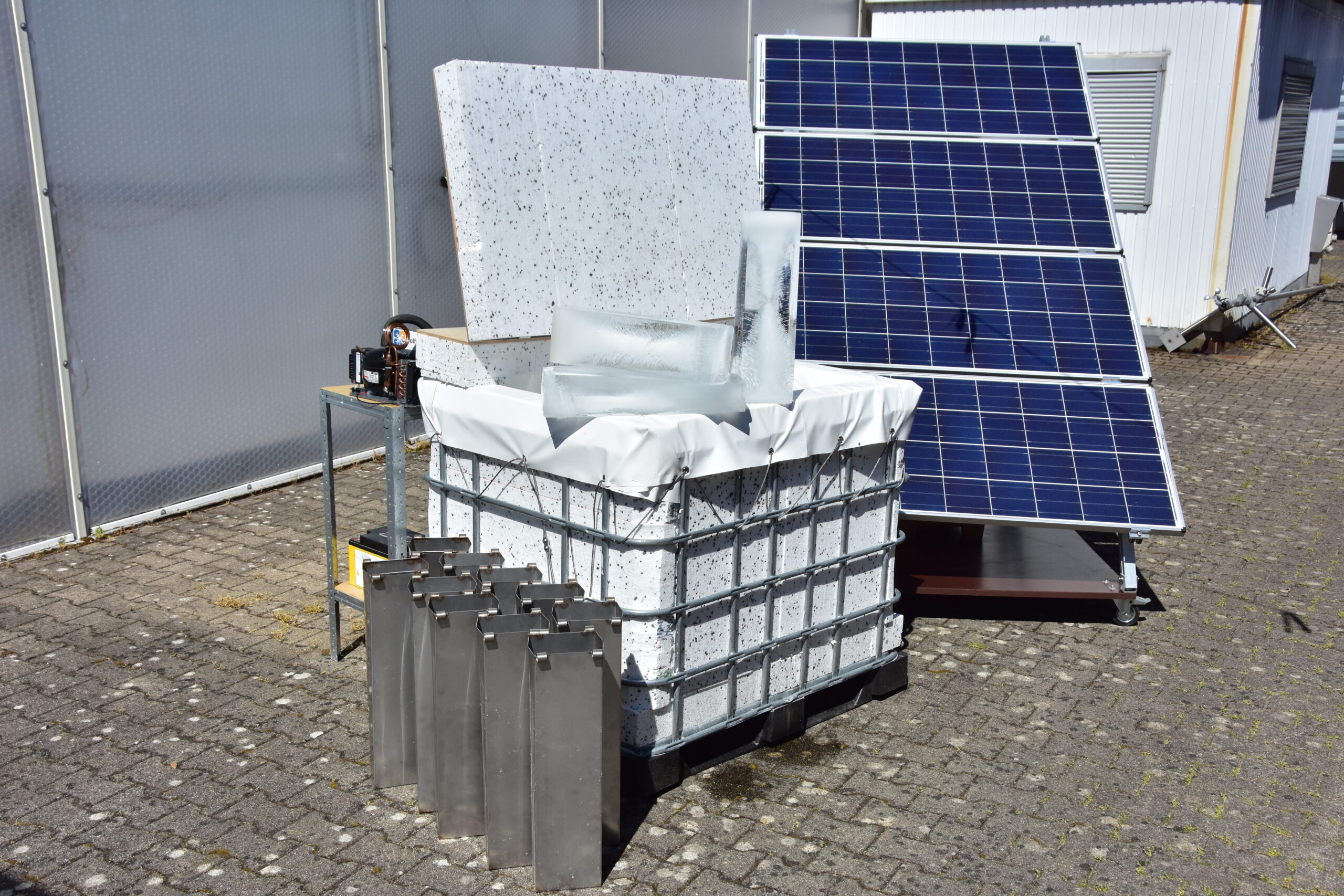
Photo courtesy of JK Engineering
This solution aligns with SDG2, zero hunger, SDG7, affordable and clean energy, and SDG13, climate action, by providing renewable-energy-powered ice production to support food preservation and agricultural industries. The Solar Ice Maker 50, in prototype at the moment, is designed for use in regions with limited electricity access while mitigating greenhouse gas emissions.
Tech Empowerment for Indigenous Women, by Wingu
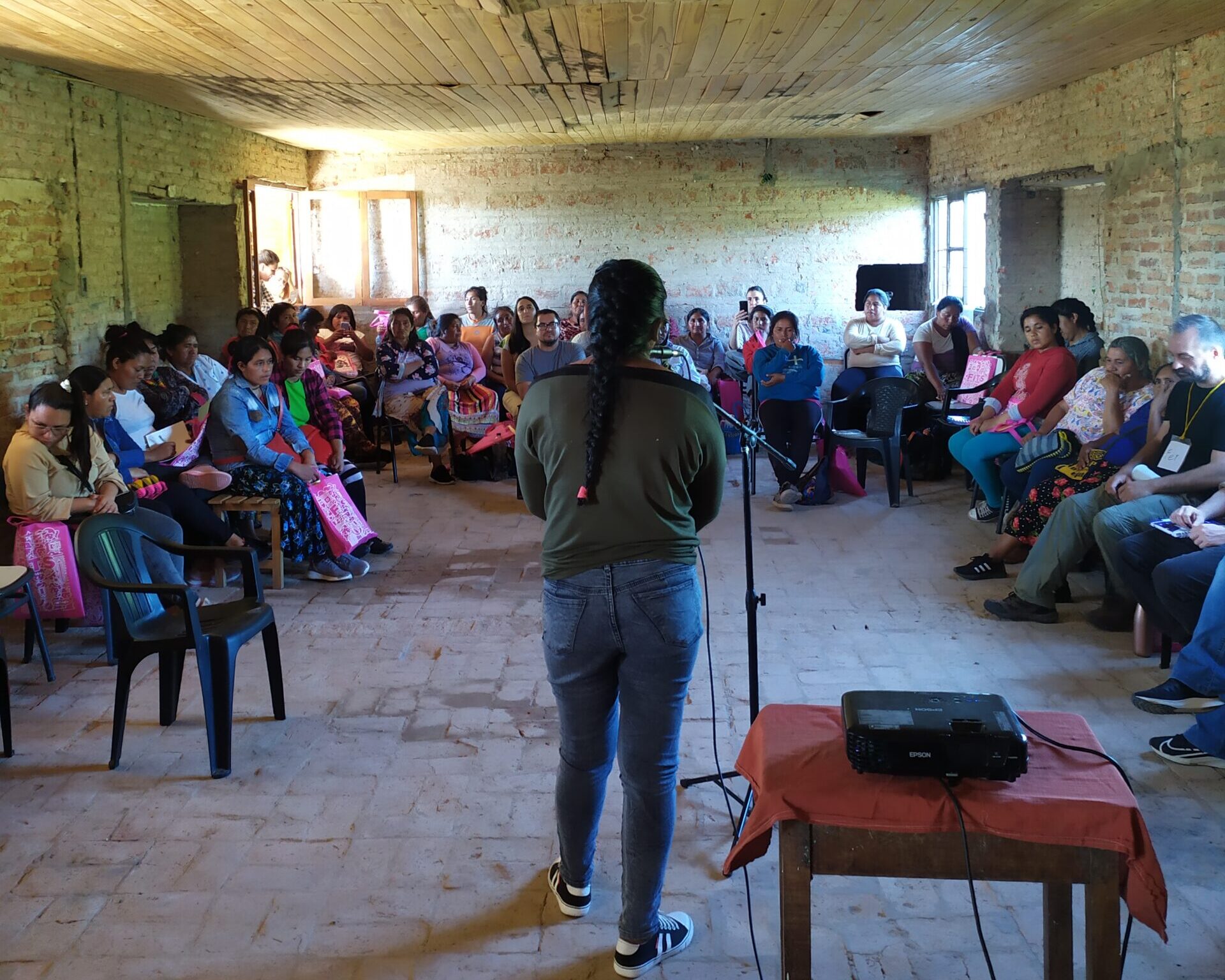
Photo courtesy of Daniela Carvajalino, Director of International Strategic Alliances at Wingu
The nonprofit ICT consultation firm Wingu uses technology to promote social change. The organization is based in Latin America and focuses on regional innovation, working with indigenous women and other underrepresented groups such as Afro-descendant communities, and the LGBTQ+ community. By collaborating with civil society, vulnerable populations, and public entities, Wingu provides tools to address local challenges and enhance sustainability.Their work highlights the role of technology in problem-solving and supporting long-term sustainable development, ensuring no one is left behind.
Their solutions align with SDG16, peace, justice and strong institutions.
No Taka Tanzania
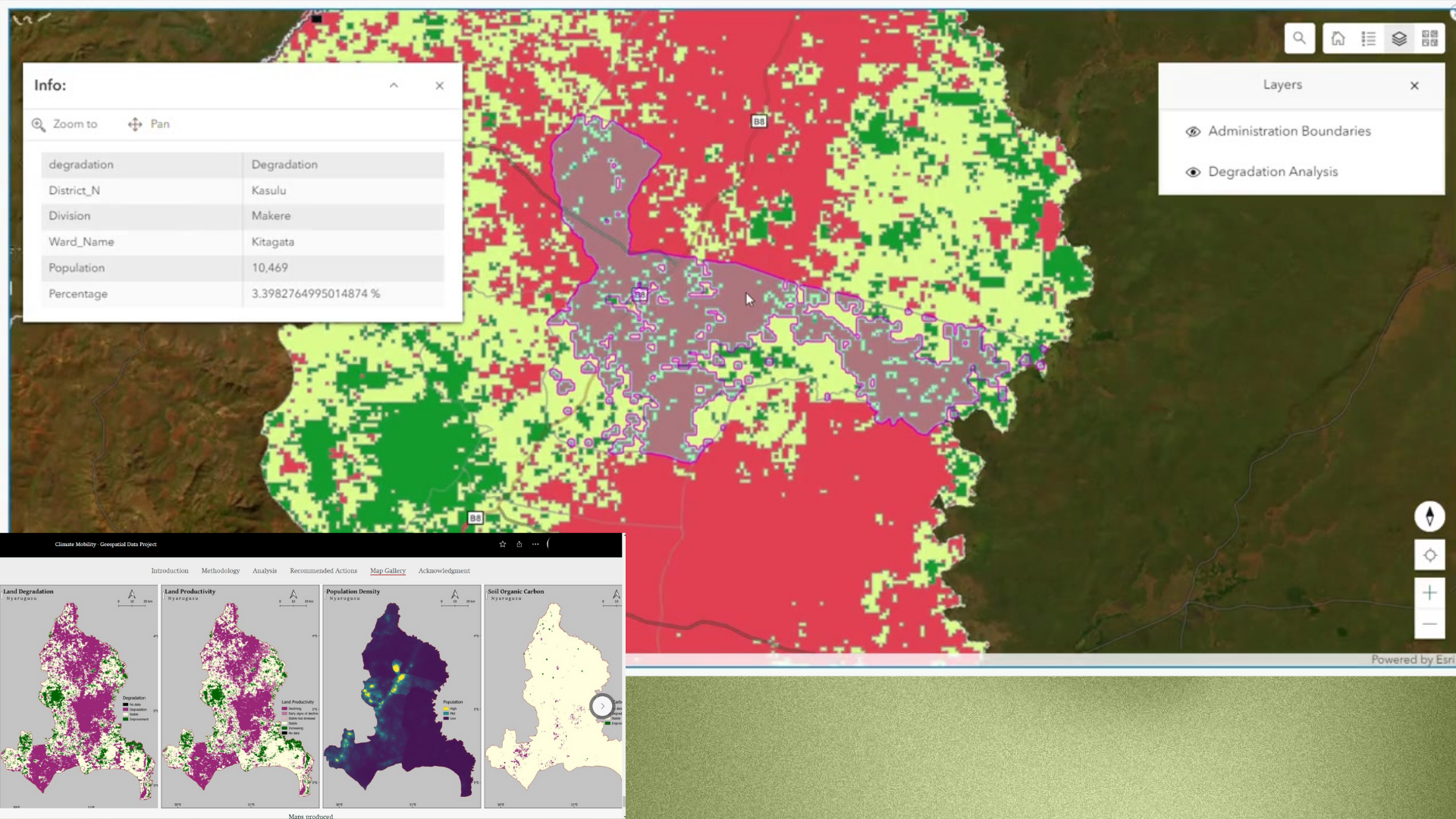
Image courtesy of No Taka Tanzania
No Taka Tanzania is a youth-led initiative that employs geospatial technology to collect climate data and predict human mobility. The technology supports preparedness and the anticipation of humanitarian action addressing food insecurity caused by climate change in northwestern Tanzania. No Taka allows users to predict humanitarian needs before they worsen. The solution supports SDG13, climate action, and SDG16, peace, justics and strong institutions as it enables proactive humanitarian responses to climate-induced disasters.
The No Taka team won the UN Major Group for Children and Youth (MGCY) Global Forum on Migration and Development (GFMD) Youth Leadership and Innovation Award for Migration (YLIA).
Local Access to Information in Ghana, by the Ghana Statistical Service Data Science Team
“YOUTH-LED. This solution is nominated for its alignment with SDG16, as it bridges the access to up-to-date information for local policymakers, fostering transparency, accountability and effective governance.
NOTE: This team is a winner team from MGCY’s UN Datathon” Software Localising SDG Indicators and Computing the Novel Access to Information Index Ghana National Statistics Office “https://www.youtube.com/watch?v=tRvDDbp2XWY
The Ghana Statistical Service Data Science Team offers this initiative comprising three solutions: localized SDG indicators, the novel Access to Information Index (AII), and an interactive tool to enhance local access to information in Ghana. The project addresses the scarcity of up-to-date information and limited accessibility for local policymakers.
The team won MGCY’s UN Datathon, and their work supports SDG16, peace, justice and strong institutions.
